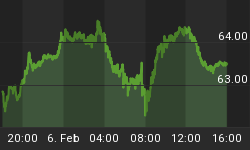Surprise, surprise; this is tax week and it seems investors are upset. Kicking off the second quarter with an awful start, stocks suffered their worst correction so far in 2008 - and just ahead of earnings season. The recent drop in stocks was (by some accounts) included the worst 4-day drop since 2008.
The word on the street is that a lot of people, from investors to economists and commentators, think that the economy is weakening, and financial markets are softening as a result. Even Dennis Gartman, publisher of the widely-read Gartman Letter and perpetual bull, has lately abandoned his optimism in favor of a doom-and-gloom outlook.
As obstinate as this may sound, we disagree with the negative outlooks of these pundits; we simply don't believe there has been any fundamental change in economic circumstances over the past two weeks to warrant such despair.
Granted, economic growth in this country may have been put on hold, due almost exclusively to rising gas prices which could even extend into the fall. However, if that happens Americans can count on having a new President when January of 2013 rolls around - and a whole new set of energy policies.
Unless he's looking forward to winter in Chicago, President Obama has some work to do to get the US economy back into high gear. In order to accomplish that, lower gas prices are an absolute must.
Additionally, this economy needs to get money circulating. The velocity of money has simply been too slow; borrowing has remained low, partially because banks haven't been able to securitize loans and sell them to investors (it seems investors learned their lesson from that little 'crisis' in 2008, which is good).
The problem now is that big lending institutions have no credibility - not after the way they hung investors out to dry in '08. Meanwhile, lower lending and less securitization has meant slower money velocity, and low velocity has translated into less economic activity - not to mention a delayed recovery in the US labor market.
Instead of lending, banks have continued to hold large portions of their reserves directly in the Federal Reserve System, where they can capture a small interest rate with absolutely no risk. In the meantime, investors have had to wait for credit markets to loosen before the prospects for expansion projects by American companies can improve.
As longtime readers will attest, we consider ourselves true contrarian investors. The goal is to sell when everyone else in the market is very excited, but buy when others are despondent. We try to follow Baron Nathan Rothschild's old adage and buy when there's blood in the streets, even if the blood is our own.
To date we've been following this model for more than 30 years, and it's worked fairly well so far. Given the situation we see today, we still believe this is a time to be making strategic buys, not selling. Companies, particularly US industrials, are poised for the kind of growth they haven't seen since the 1980s. After watching BRIC nations develop over the past 3 decades, the time has finally come for America to reindustrialize, just as it has done several times throughout history.
While many dismiss this forecast as unlikely, it is characteristic of history over the long term. Things always cycle; even the relocation of manufacturing is not a one-way street. Today the pro-America trade is on; betting against America is going to be a losing proposition for the next 20 or so years.















